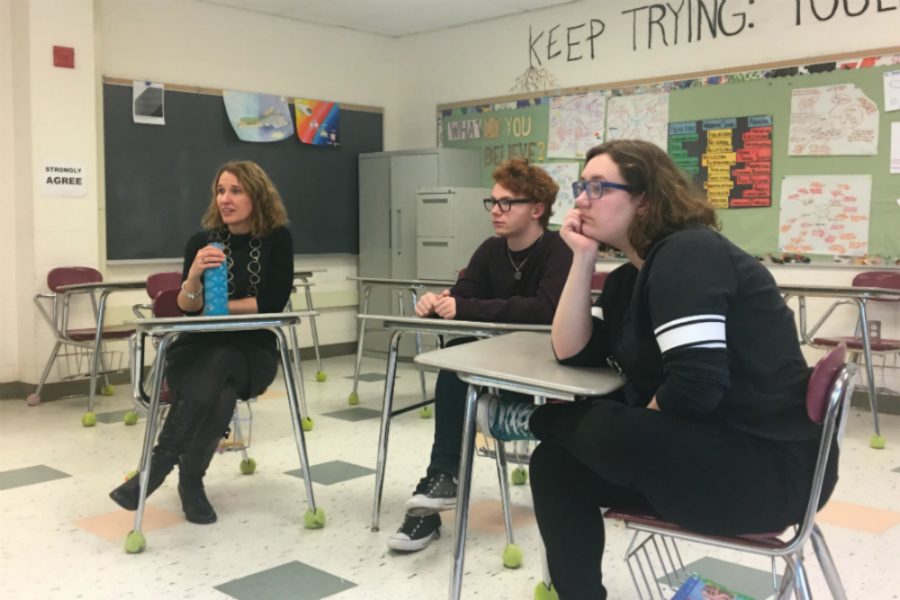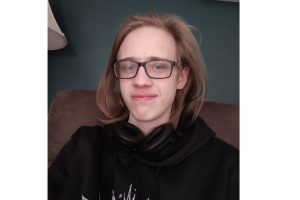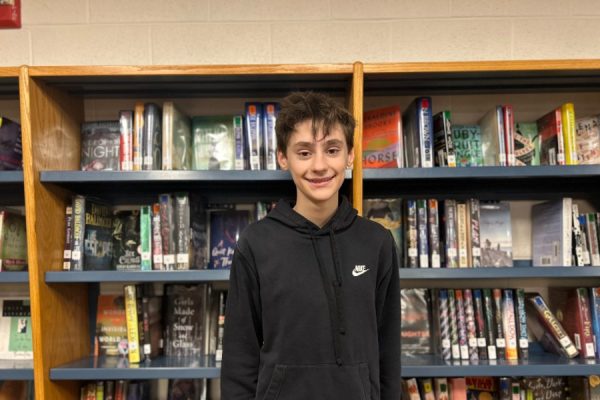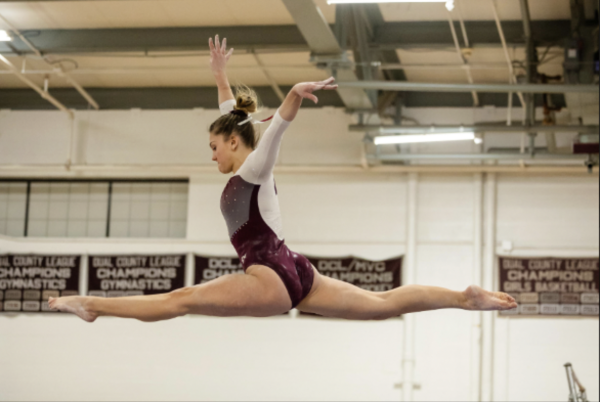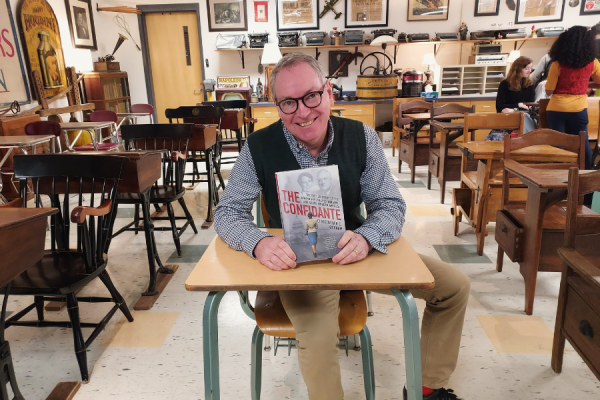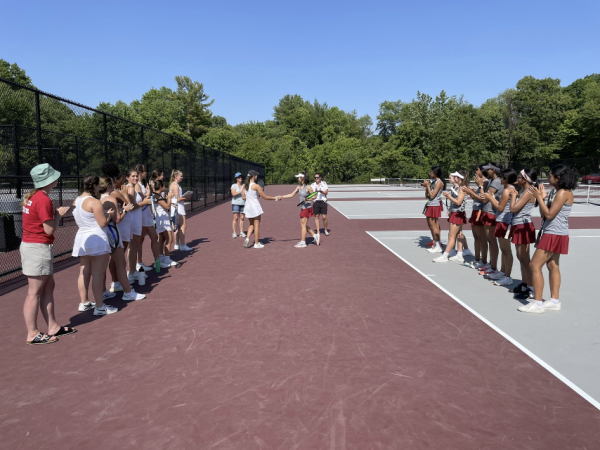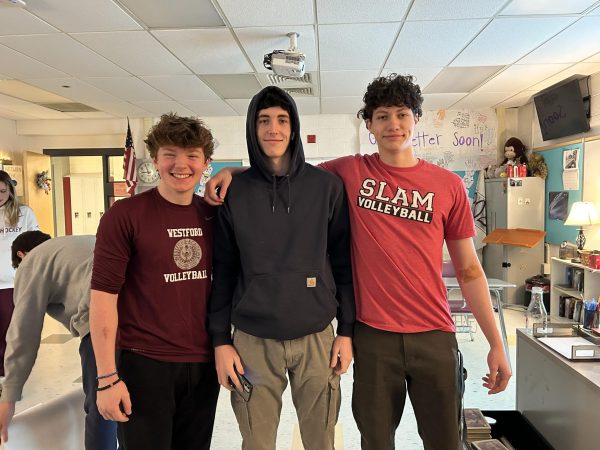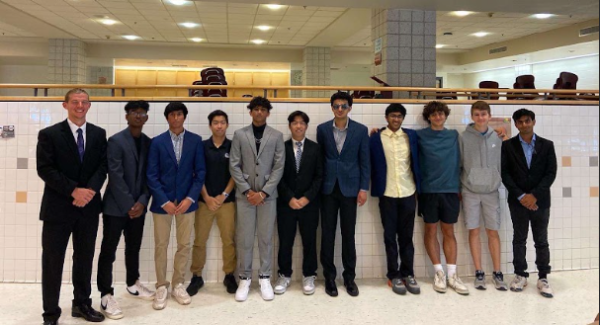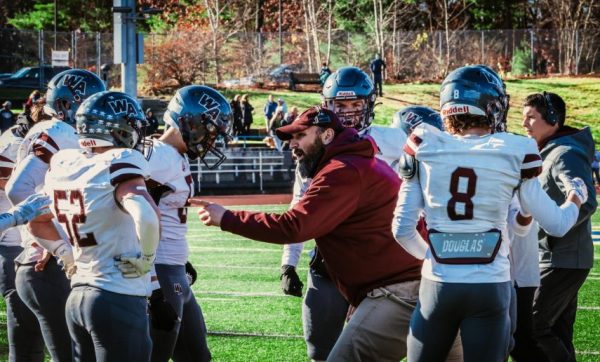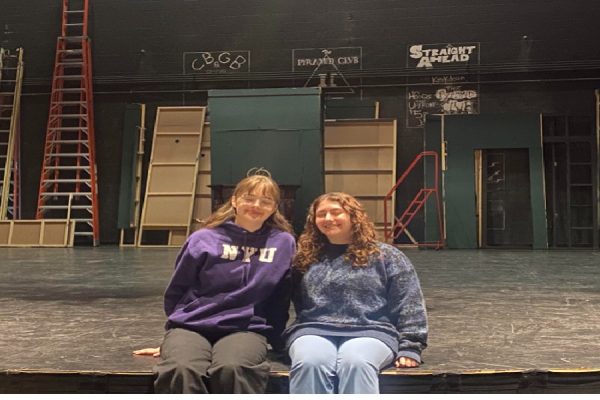COEXIST Club sends a message of acceptance
Ingerslev and a few students from the club watch as Schroeder works on a banner design.
January 21, 2018
On a Tuesday afternoon in Room 251, students sit at a cluster of desks pulled together while editing a Word document up on the projector. Written with the symbols of various world religions, the document reads just one word as of now: COEXIST.
While COEXIST Club is new to WA this year, senior and president Violet Schroeder first brought up the idea of a world religions club about halfway through the 2016-2017 school year. Her fascination with religion has much deeper roots, though, going back to 7th-grade ancient history. She was captivated by Greek and Egyptian mythology, and that interest soon expanded to include modern religion. Now, her passion for religion has taken the form of the presentation and discussion-based COEXIST Club, where students of various religions share their traditions and experiences.
The club contains students who practice a variety of faiths, including Judaism, Islam, Universalist Unitarianism, and Wiccanism, as well as atheists and agnostics. Schroeder describes the primary purpose of the club to be a “learning space” where student presentations prompt discussion and a greater understanding of not just the religion but the person.
Recently, for example, health teacher Lauren Coffey gave a presentation on the Unitarian Universalist church. She explained the basic principles of the religion as well as the significance of certain items such as a chalice. In the future, the club will be holding similar presentations on Judaism and Wiccanism, as well as progressing to the discussion of unifying factors among religions and religious persecution.
To Schroeder, the club’s importance boils down to increasing sensitivity to others through understanding all parts of their identities.
“My goal for the club is to teach people about other religions so they can understand them better and what makes people who they are,” she said. “I feel that it’s easier to empathize with someone else if you understand them.”
She also wishes to promote the school from simply acknowledging religious minorities to embracing them.
“Our school’s mission statement uses the word ‘tolerance’, but tolerance isn’t necessarily acceptance,” she said.
Considering that club mainly attracts people who are already open-minded, changing the climate at WA seems far-fetched. However, simply the presence of such an initiative can help out the general atmosphere at WA and provide a respectful forum for discussion.
“In our group, we don’t necessarily all have to be friends and hang out, but I think that to have a level of respect in this space — it translates into other areas as well,” adviser Rebecca Ingerslev said. “I would hope just seeing the message to coexist would have a positive impact on people.”
Although problems with religious discrimination may not seem especially prevalent in WA, a little goes a long way in contributing to a student’s insecurities. Ingerslev described a situation in one of her classes where a student made an anti-Semitic comment anonymously, prompting a class-wide discussion. The students agreed that even a small instance of identity-based discrimination could lead to unhappiness and discomfort.
“Basically everyone said, ‘I’d feel completely isolated and alone if just one person in the class hated me because of my identity’. […] Do you hate a particular group because you feel threatened by that group? Is it because you just don’t know enough? Is it because that’s how your family culture is?” she said.
Schroeder, who is Jewish, has had similar experiences with anti-Semitism. At the end of last year, for example, people around her made inappropriate comments about the Holocaust in two instances within two days. Being an extremely reserved person, Schroeder could not directly confront them, but her difficulties made her more acutely aware of the problems of people around her.
“I have faced some difficult situations that people of the majority would not have, and it’s helped shape who I am […] so it has helped me become aware of situations where people are being put down just because of who they are,” she said.
This leads back to the club’s purpose as a space for students of minority religions to grow comfortable with their differences through sharing them. Both Schroeder and Ingerslev agree that while being a minority has its fair share of problems, it can be a source of pride and personal strength as well.
“High school is a period in life where people are really trying to figure out their identity, and where they fit in, and sometimes it can be really painful to feel that you’re different from anybody else. But I think it’s also a really empowering thing when you can embrace that difference and have confidence in it,” Ingerslev said.

